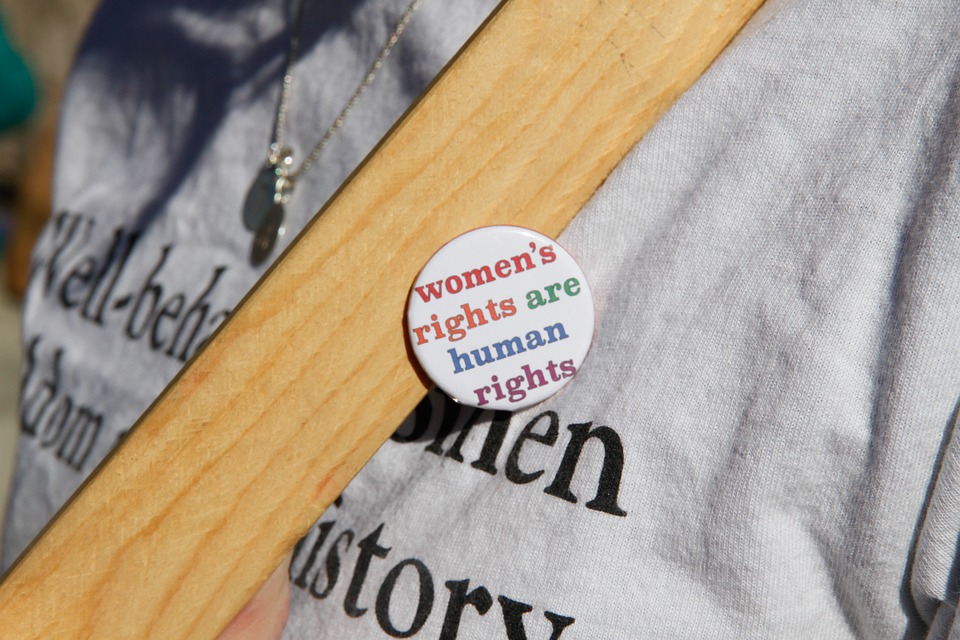


Women struggle to be heard and seen as equal to men. We are still struggling in terms of own reproductive rights, to be paid the same as men for the same work, and the ability to exist in public spaces without being objectified, harassed, or assaulted. How you walk in this world as a woman differs depending on your point of departure. In other words, if white women get a cold, Black women get the flu.
For women of faith, the Bible is often wielded as a weapon to keep us in our place. You already know the familiar handful of Scriptures that are slapped on women like the big joker in spades, passages like 1 Timothy 2:11-15 (“Let a woman learn in silence with full submission…”), Ephesians 5:22-24 (“Wives, be subject to your husbands…”) Genesis 3:16 (“to the woman [God] said, ‘I will greatly increase your pangs in childbearing; in pain you shall bring forth children, yet your desire will be for your husband, and he shall rule over you.”)
It becomes imperative, then, to find places in Scripture that are liberating, since the Bible remains authoritative for religious communities. Some might argue that this is not even possible. How does a woman who believes in equality find liberation in the very Bible so often used to silence her? Must a feminist/womanist abandon the biblical tradition? Did the Bible itself deliberately oppress women, or was/is the problem male translators? Is it acceptable in the eyes of God to ‘re-interpret’ the Bible?
I tend to fall in the latter category. I believe the Bible must be re-interpreted and re-imagined for every generation. In the fifth chapter of Matthew there are several references attributed to Jesus that sound like this:
“You have heard it said….but I say unto you….”
Jesus is not only asking us to wrestle with meaning, but to consider other interpretative options available to us. Like many feminist/womanist readers of the Bible, we scour the texts for women who stand outside of the wife/mother model, for women who buck the biblical system. And one of those women is Jael.
Jael is found in the book of Judges (4:17-22; 5:6; 5:24-27).
She is a prominent figure in Israel’s war with the Canaanites, a war that happens to also feature a military leader, judge and prophet named Deborah. Deborah sends of her generals, Barak, to fight Sisera, the Canaanite general of King Jabin. But Sisera escapes from Barak. Deborah has already prophesied that it would be a woman who takes out Sisera, and that that woman would be Jael, wife of Heber the Kenite (Judges 5:9).
Sisera clearly has not gotten the memo about this prophecy, because when he flees from Barak, he approaches Jael’s tent. She invites him in, offers him some libation, and wraps him in a blanket (or rug, depending on which Bible translation you’re reading from). When he falls asleep, Jael drives a tent peg into his forehead, then calls on Barak to come review the body.
Like the Dora Milaje, the elite squad of Black women protecting King T’Challa in “Black Panther,” women warriors are not here to play. Although we never hear the reasons for Jael’s actions, her deed is deemed heroic in poetry, referred to as “most blessed of women” in Judges 5:24.
And also like the film “Black Panther,” we see the positive impact of representation upon young women and girls. Feminist/womanist readers of the Bible seek to do likewise, reminding us that even in the Bible, there are women whose stories are there, waiting to be told, to be re-imagined, and to be preached for a new generation.